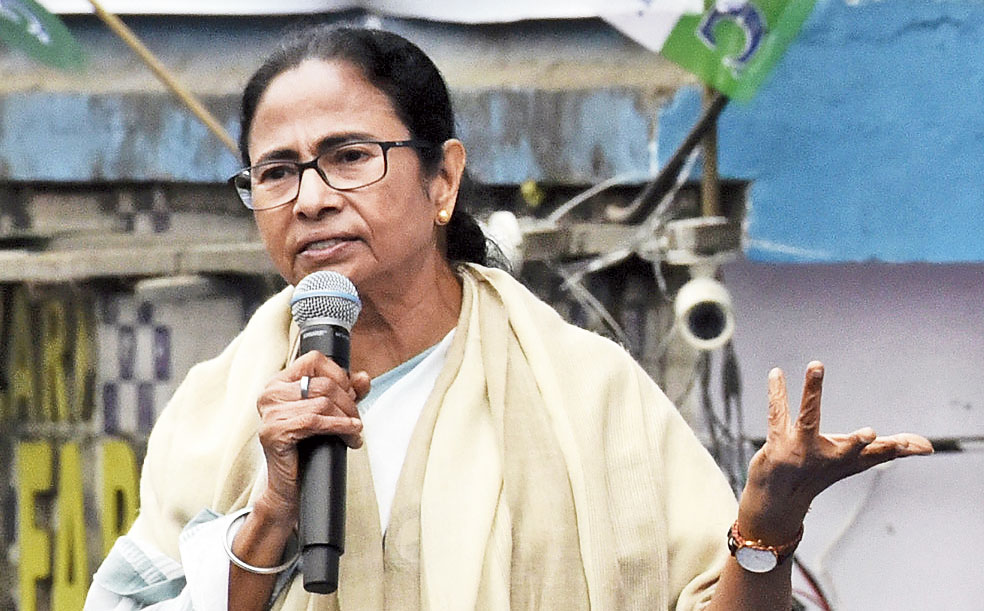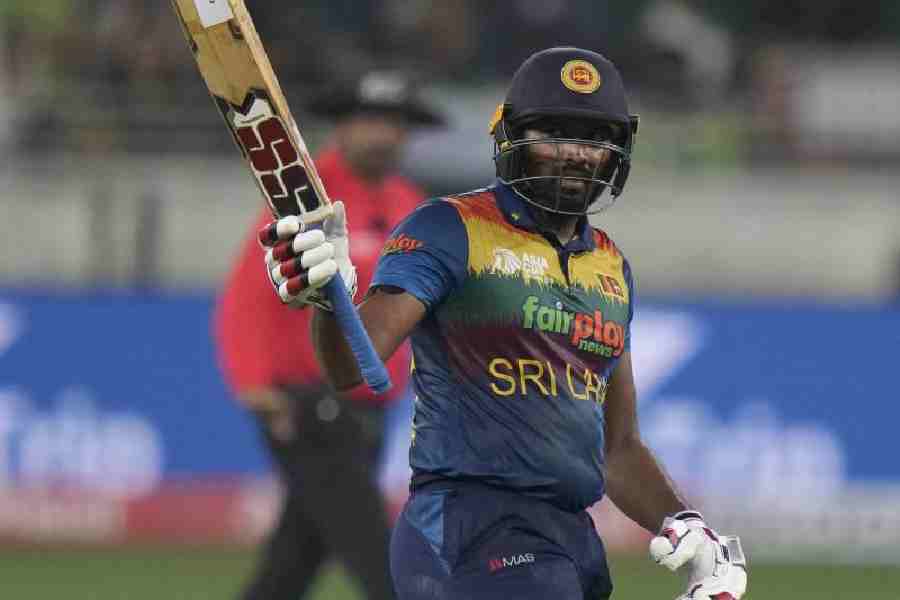“Secularism”, “democracy” and “humanism” playing on her lips, Mamata Banerjee on Thursday showered praise without reserve on the students of the country and pledged her full support to them.
“I request student brothers and sisters not to back down, not to feel alone or abandoned. We, the whole of India, are with you. Do not be afraid…. You made the whole world sit up and take note. Forever take pride in that,” the chief minister said while leading her fifth mass march and the seventh big protest programme in the past 11 days.
If her comments marked an unusual moment in Indian public life where credit is rarely given where it is due, the gracious gesture also underscored why the protests against the amended citizenship act and the National Register of Citizens (NRC) continue to touch a wide cross-section of Indians.
The latest to add their voice to the chorus of solidarity with the besieged Muslims were members of the Church, teachers, professionals, entrepreneurs and students who marched in silence from St Paul’s Cathedral, a towering symbol of the cosmopolitan character of Calcutta.
That almost all segments of the population have stood up to be counted when an unforgiving dispensation is in power at the Centre is a testimony to the nature of the movement.
The protests have remained inclusive and secular, overcoming the initial misgivings fuelled by acts of arson in the some districts of Bengal, some of which have been blamed on vested interests.
“We are for humanity, for humanism, for civilisation, for secularism, for democracy, for communal amity… nothing else matters,” Mamata said on Thursday to thunderous applause from thousands at the Rajabazar crossing in north Calcutta, the starting point of the 3.6km march to the Mullickbazar crossing in central Calcutta.
Mamata was clearly trying to reach out to youths across the country, who are at the forefront of the protests, urging them not to let their resistance flag.
The course the protests will take is still unclear but Mamata has the first mover’s advantage. She was the first mainstream political leader to read the popular pulse and realise that the Modi government’s citizenship overdrive had touched a collective raw nerve.
She also made sure that the protests were not confined to any one political party. “We want everyone in this protest, this is a fight to the finish against the BJP’s divisive agenda,” the chief minister said.
Rajabazar, where Mamata spoke on Thursday, and Mullickbazar, where the march ended, boast some of the oldest Muslim neighbourhoods of Calcutta. Mamata made it a point to hammer home the secular character of the protests.
Unmistakable evidence was on display elsewhere in the city. Pastors, priests, nuns and hundreds of people from across communities marched on the city’s streets from St Paul’s Cathedral, responding to a call by two arms of the Archdiocese of Calcutta.
The Church members sought to focus attention on the need for solidarity, not their religion — an aspect of the countrywide rallies that is being seen as one of their biggest strengths, more so in Bengal.
“Mamata knew very well that unless the movement showed a secular character, the BJP would use it to divide the people along communal lines,” said a senior Trinamul Congress MP, underlining how the front rows of her rallies had been formed by Buddhist, Christian and Muslim clerics as well as musicians, athletes and artistes.
On Thursday, Mamata focused on the students — not only those in Bengal but across the country — saluting their zeal in the face of intimidation and assaults.
She warned the BJP against cracking down on the protesting students. “You (the BJP) should remember that there are many, many non-BJP state governments in the country,” she said.
“There are laws everywhere. We could also start using the laws to come down heavily on anything the BJP does in our states. We could — if the BJP-ruled states continue to try to crush the students’ movement students by torturing them,” she added to loud cheers.
Mamata warned against the BJP’s alleged attempts to vilify the movement. “Pehley toh garbar kartey hain, uskey baad zulm kartey hain, uskey baad badnaam kartey hain (First they mess up, then they oppress, then they malign),” she said.
“Hum aah bhi kartey hain toh ho jaatey hain badnaam/ Woh qatl bhi kartey hain toh charcha nahin hota (Our mere sighs bring us dishonour/ Even their murders are not discussed),” she added, reciting a couplet by the 19th-century Urdu satirist Akbar Allahabadi and having to pause for the deafening applause to end.










